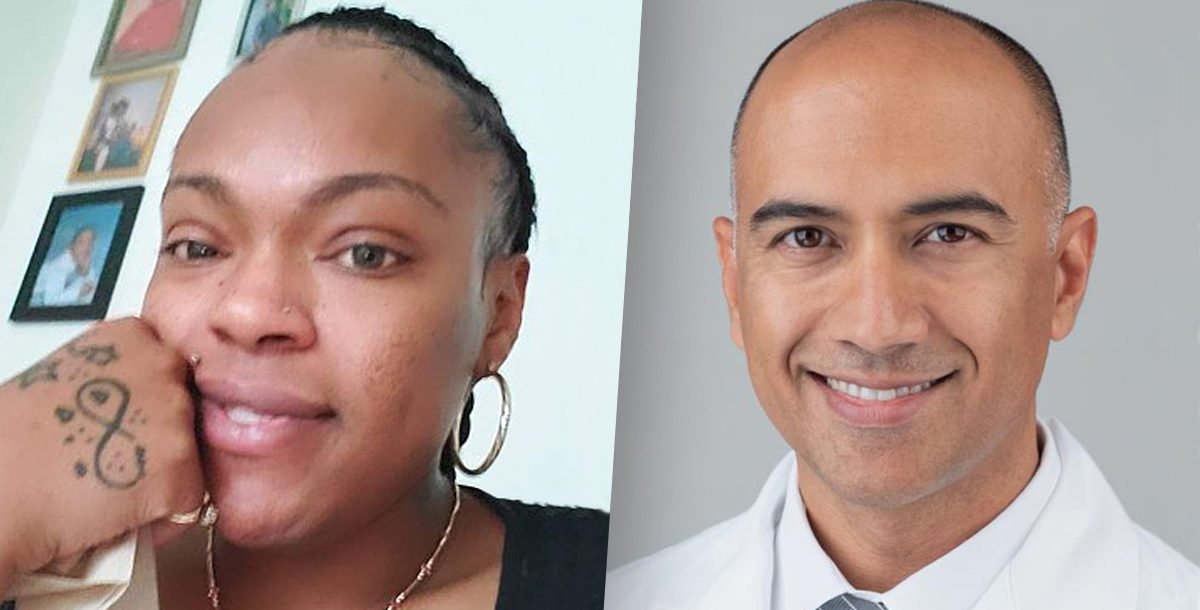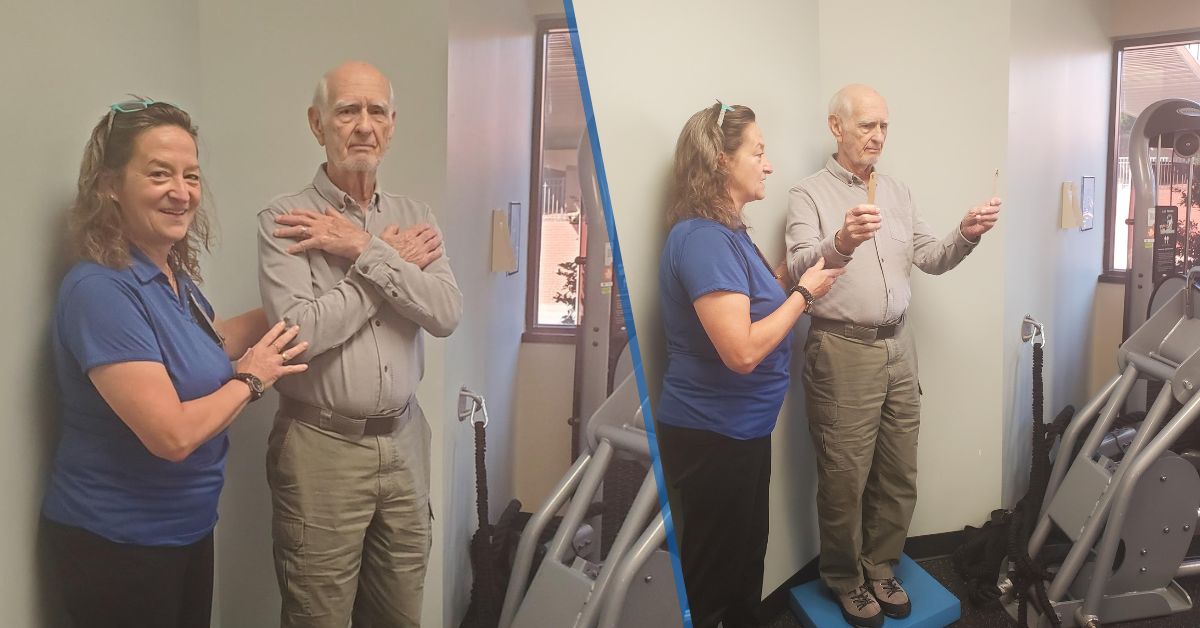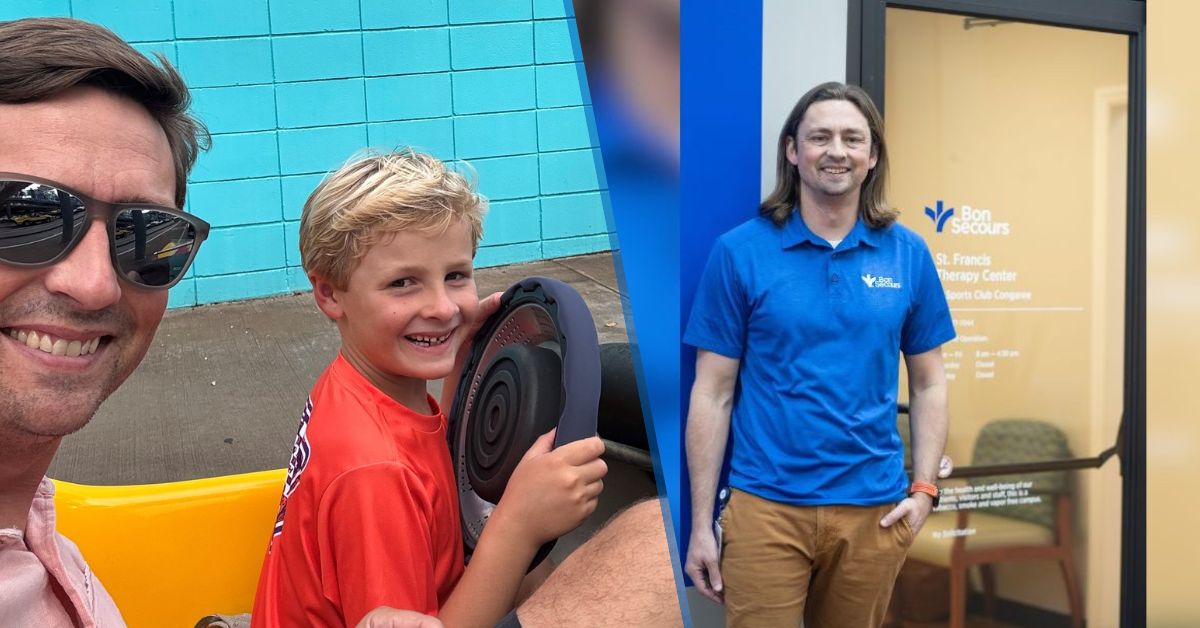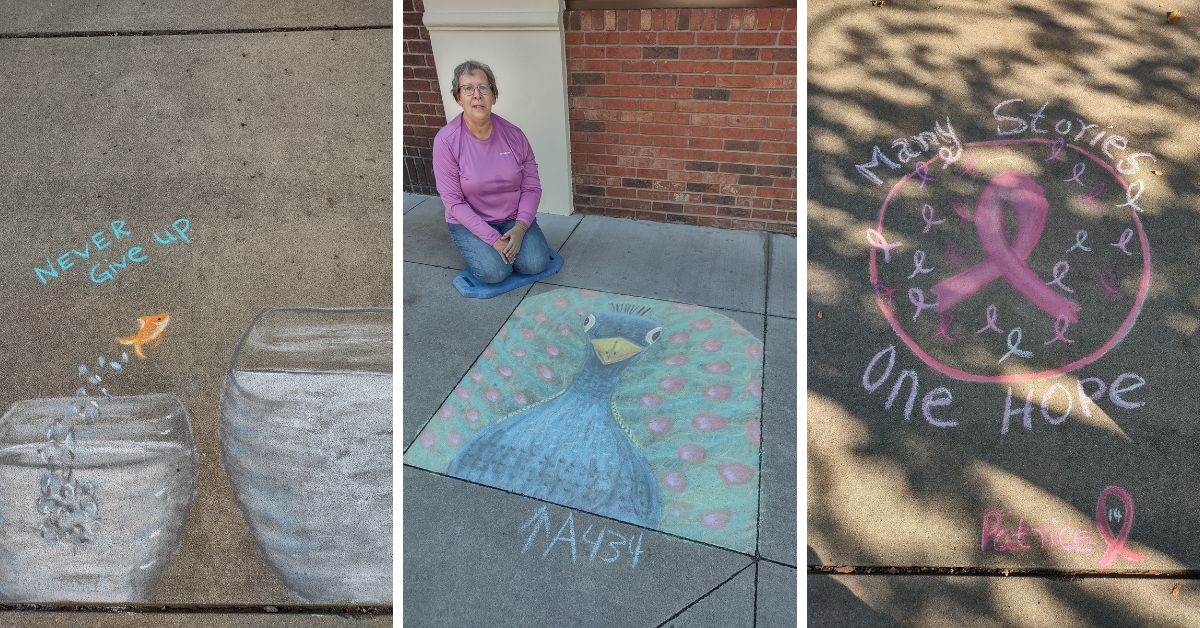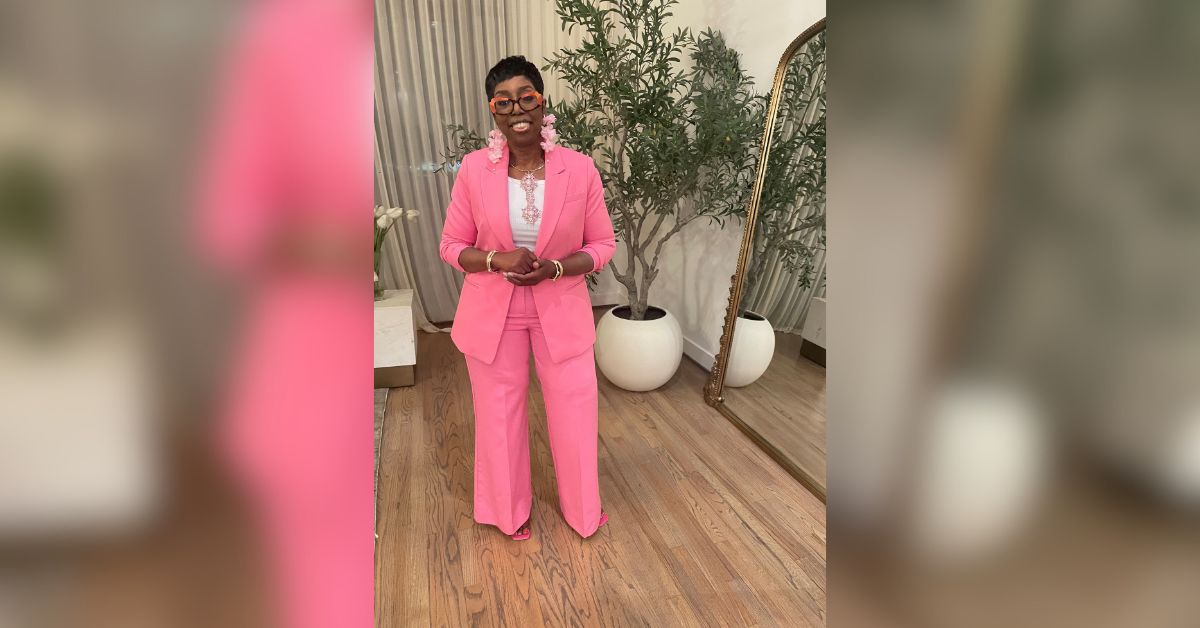If a stroke ever happens to you or a loved one, please know our care team is here for you, from the earliest stages to rehabilitation and beyond.
A stroke is a sudden interruption of the blood supply to the brain. It occurs when a blood vessel in the brain gets blocked or ruptures, causing cells to lose oxygen and die. Strokes affect your neurological system and require immediate care for successful treatment.
“You’ll often hear the phrase ‘time is brain.’ We say this because with each passing minute during a stroke, brain tissue and millions of neurons begin to fade away,” Matthew Austin, MD, (pictured above, right) a neurointerventional surgeon with Bon Secours UVA Neurointerventional Surgery Clinic, shares. “The longer someone who is suffering from a stroke goes without help, the higher the chance of permanent disability or other severe outcomes. Therefore, it’s important to act fast if you or a loved one may be experiencing a stroke.”
Ieasha’s Story
It was clear something was wrong with Ieasha (pictured above, left) when her husband handed her a glass and it fell right out of her hand. With symptoms including drooling, facial drooping and an inability to operate the left side of her body, they made a quick video chat call to her mother for a second opinion. With a family history, they suspected that she could be experiencing a stroke. So, 31-year-old Ieasha was immediately on her way to the hospital to be evaluated.
After arriving at Bon Secours Richmond Community Hospital, a primary stroke center, and having her suspicions confirmed, Ieasha was experiencing an ischemic stroke. She was sent immediately to Bon Secours St. Mary’s Hospital, which is designated as a comprehensive stroke center (CSC). She was transferred due to imaging identifying a clot in an area of the brain that could be removed with special expertise and technology that was available at a CSC.
Upon arrival, Ieasha immediately underwent interventional surgery and Dr. Austin was able to successfully remove the blood clot.
“Dr. Austin did a wonderful job,” she shares. “He explained everything about the surgery to my family members, explaining all the potential risks and complications.”
Thankfully, Ieasha’s surgery was a success and Dr. Austin was able to remove the blood clot with no complications, avoiding a large stroke. However, her recovery is ongoing as a very small portion of the brain was affected and no longer functions as it once did. She continues to undergo testing to determine her risk for additional blood clots, which could lead to strokes in the future. Ieasha may even need additional treatments, but she’s doing what she can to improve.
Ieasha has been working on changing her eating and exercising habits, adjusting her medications with the help of her doctors and doing what she can to live with less stress.
“My biggest advice to others would be to do what you can to alleviate stress from your life. I’ve lived with so much stress, and I’ve lost a lot because of it,” Ieasha shares. “Find different ways to cope so you can prioritize your health. Value life and appreciate what you have so you can get better.”
Proud to be a comprehensive stroke center
The Bon Secours St. Mary’s Hospital Comprehensive Stroke Center, where Ieasha was treated, was formed in 2016 and provides the region with high quality, compassionate cerebrovascular and stroke care. Having a designation as a comprehensive stroke center indicates to the community, and more specifically to our EMS partners, that St. Mary’s Hospital is able to receive and treat stroke patients in a timely manner with all of the necessary resources to ensure the best possible outcomes.
In addition to Bon Secours’ Neurology Clinic at St. Mary’s, we also have a partnership with the University of Virginia and offer Bon Secours UVA Neurointerventional Surgery that cares for patients with blood vessel disorders of the brain, neck and spine using minimally invasive techniques. This type of surgery requires specialized expertise, equipment, physicians and staff to guide a catheter up into the small, fragile vessels in the brain, from tiny incisions in the groin or wrist, to either extract the clot or stop the bleeding with “glue” or coils.
With state-of-the-art equipment and innovative technology, we are able to offer the newest achievements in treatment and diagnosis, resulting in fewer complications and shorter recovery times than traditional surgery.
In addition, Bon Secours has been officially designated as a Stroke Smart Health System in the Commonwealth of Virginia. Stroke Smart Virginia is a public health initiative to reduce pre-hospital delays associated with stroke by educating the public to recognize the signs and symptoms of stroke and early 911 activation.
Be Stroke Smart! Know the sudden signs and symptoms of a stroke and “BE FAST.”
If you or a loved one is having a stroke, call 9-1-1 immediately. Do not drive yourself or your loved one to a hospital. Call 911 so you get expert emergency care on the way to the hospital. Remember, with a stroke, every minute counts.
Learn more about strokes as well as the treatment and care options available at Bon Secours.

